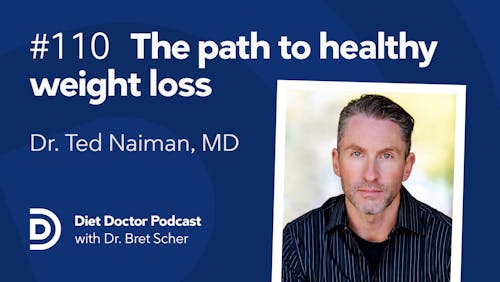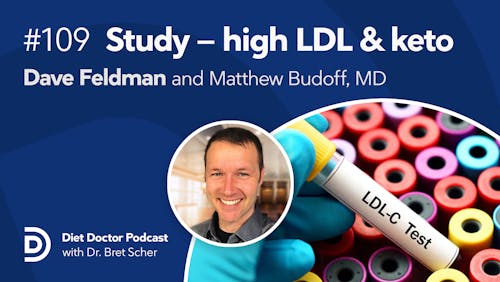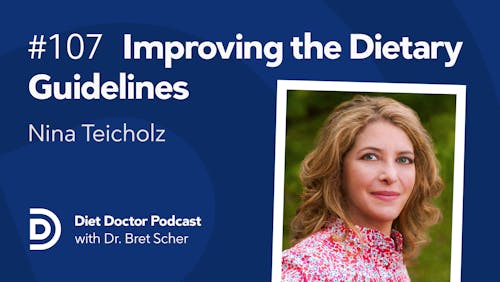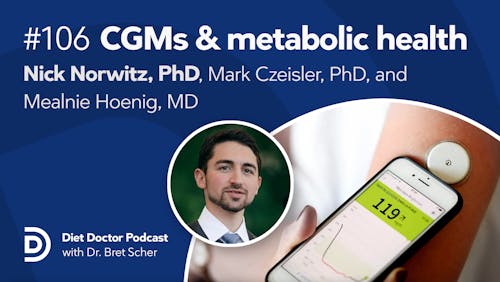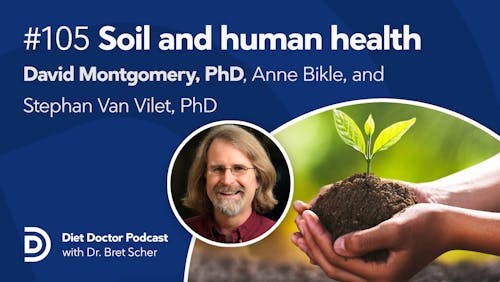Diet Doctor Podcast #22:
Dr. Georgia Ede
1,478 views Add as favorite
It turns out, the brain and the body aren’t that different when it comes to the risk of toxicity from too much glucose and carbohydrates. As a practicing psychiatrist, Dr. Georgia Ede has seen the benefits of reducing carbohydrate intake on the mental health of her patients. She shares her experience and the unfortunate reluctance of some to acknowledge this association.
Georgia is also an expert in nutritional science, and she lends her take on incomplete and baseless reports such as the EAT-Lancet report. Is it science? Or is it vegan propaganda cloudy by faulty science? Georgia dissects the science and clearly shows how the report falls short of its “evidence based” claims.
About the video
Recorded the Low Carb Denver in March 2019, published in June 2019.
Host: Dr. Bret Scher
Lighting: Giorgos Chloros
Camera operators: Harianas Dewang and Jonatan Victor
Sound: Dr. Bret Scher
Editing: Harianas Dewang
1:34 Welcome, Dr. Georgia Ede
2:41 What usually improves in patients applying nutritional therapies?
4:52 The importance of clinical supervision if taking medication
6:11 Experiences from giving nutritional recommendations at universities
11:08 Traditional teaching about mental health, the effect of different neurotransmitters and the role of low carb
16:16 Different diagnoses and problems respond to different interventions
21:25 Criticism of the EAT-Lancet report and anti-meat claims
32:01 Is the diet EAT Lancet recommends nutritionally complete?
35:54 Alzheimer’s, dementia and low carb
43:02 Reasons why a carnivore diet might work
It turns out, the brain and the body aren’t that different when it comes to the risk of toxicity from too much glucose and carbohydrates. As a practicing psychiatrist, Dr. Georgia Ede has seen the benefits of reducing carbohydrate intake on the mental health of her patients. She shares her experience and the unfortunate reluctance of some to acknowledge this association.
Georgia is also an expert in nutritional science, and she lends her take on incomplete and baseless reports such as the EAT-Lancet report. Is it science? Or is it vegan propaganda cloudy by faulty science? Georgia dissects the science and clearly shows how the report falls short of its “evidence based” claims.
About the video
Recorded the Low Carb Denver in March 2019, published in June 2019.
Host: Dr. Bret Scher
Lighting: Giorgos Chloros
Camera operators: Harianas Dewang and Jonatan Victor
Sound: Dr. Bret Scher
Editing: Harianas Dewang
